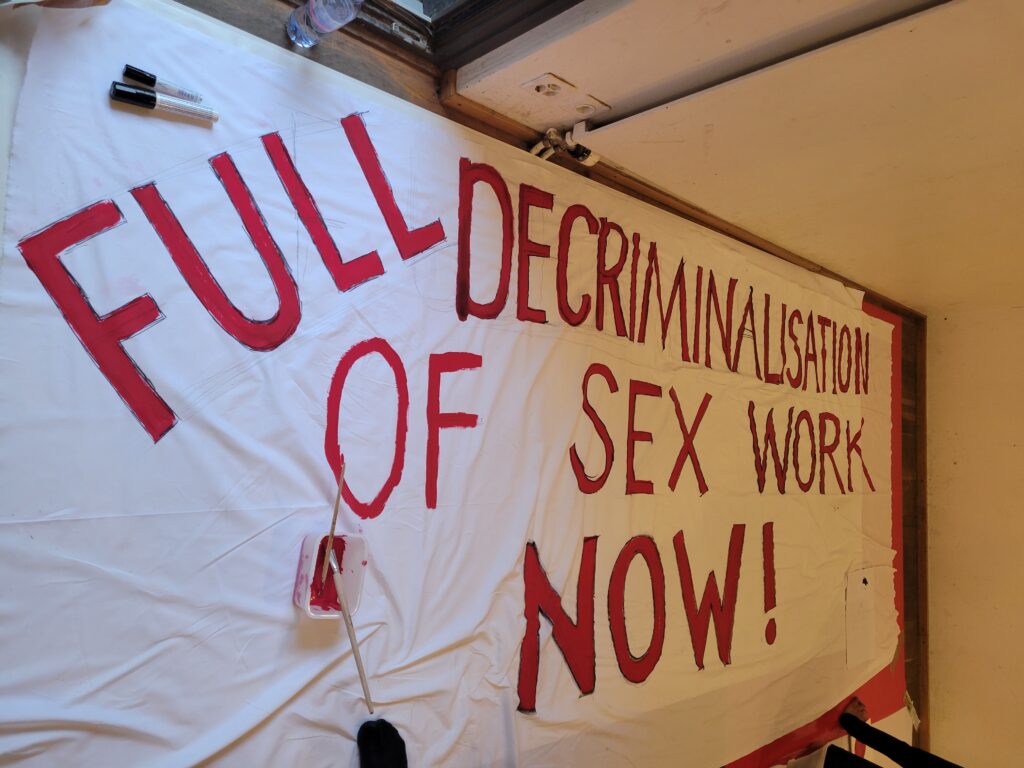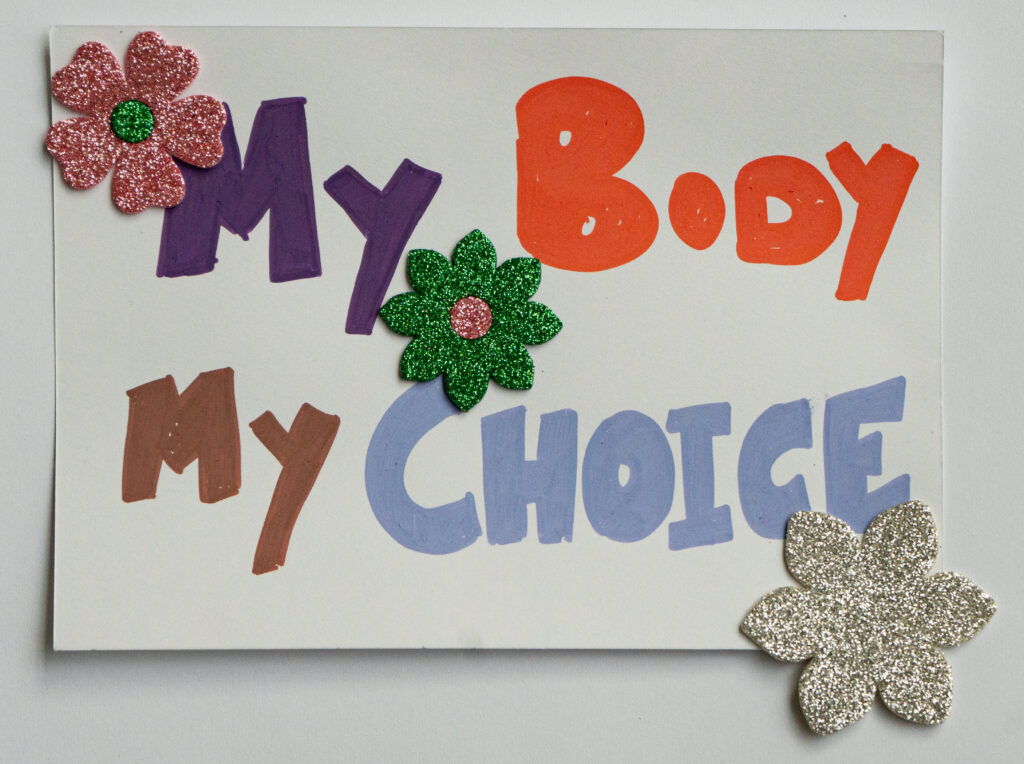Despite the ongoing shrinking space for civil society to engage with global human rights mechanisms, feminists continue to dispute global human rights spaces like the Human Rights Council (HRC) to uphold rights and standards connected to gender equality, gender-based violence, health and economic rights, sexual and reproductive health and rights. The 56th Human Rights Council session (HRC56) was no exception, where feminists and sex workers’ rights activists organised to call governments for the decriminalisation of sex work.
Sex workers, feminists and allies have recognised that the decriminalisation of sex work is a necessary pre-condition to the full realisation of human rights, including sexual and reproductive health and rights, bodily autonomy and integrity, and access to justice.
The participation of sex workers in all discussions and decisions about their lives and their rights is essential. This also includes discussions at the United Nations, where discussions to secure the rights of sex workers are long overdue:
“The first form of violence is that people refuse to hear our voices and impose moral judgments against us. Our voices as sex workers must be heard. To protect ourselves from violence, we need labour law, the recognition of sex work as work, and respect for our choices as sex workers.” (Source)
During the 56th UN Human Rights Council session from 18 June to 12 July 2024, we saw the first global delegation of sex workers participating in an HRC session, supported by the Global Network of Sex Work Projects (NSWP) and Sexual Rights Initiative (SRI). The delegation highlighted the years of work and advocacy by sex worker-led movements worldwide for the full decriminalisation of sex work, the right to bodily autonomy for all, and the need for the Human Rights Council to meaningfully listen to sex workers as rights holders.
CMI!, along with other allies, joined the delegation in calling for the decriminalisation of sex work through a protest outside of the Palais de Nation, participated in the social media campaign and co-sponsored the side event” Decriminalising Sex Work: A Human Rights Imperative”. CMI! also led a separate social media campaign highlighting feminist support for sex workers’ rights.


“As sex workers, we know that the causes of violence are not sex between consenting adults, but the denial of our existence and our ability to consent and make decisions.”(Source)
The conflation of sex work with trafficking and of sex work with violence is harmful and stigmatising. Sex workers are often best placed to do anti-trafficking work, including negotiating access to brothels, identifying sexually exploited children, training survivors on accessing justice, offering harm reduction, and increasing pathways to healthcare for survivors deprived of freedom of movement.
Discourses that fail to recognise the autonomy and agency of sex workers are reductionist, discriminatory, stigmatising, violent and undermine the bodily autonomy and integrity of sex workers. Unfortunately, these harmful narratives have also been pushed within human rights mechanisms by human rights experts who have ignored the voices of sex workers and agreed standards around sex work. However, UN agencies, such as the Joint United Nations Programme on HIV/AIDS, the World Health Organization, the UN Population Fund, the UN Development Program and UN Special Procedure holders like the Working Group for Discrimination of Women and Girls and the Special Rapporteur on Contemporary Forms of Slavery, have called for decriminalisation of sex work and the protection of the rights of sex workers.
Sex work is not inherently violent; it is criminalisation that places sex workers at the greatest risk.
As expressed by over 200 sex workers and allies through the Kathmandu Declaration:
“Sex workers do not need rehabilitation or rescue. Rescue and rehabilitation are stigmatising and disrespectful because sex workers are not treated as having individual will or agency. Sex workers’ rights should go beyond the right to access/receive services. They must include the right to practice their profession free from harassment and stigma.”


Sex workers’ rights are human rights. Sex workers’ human rights extend to many spheres, including labour rights, economic rights, health rights, sexual and reproductive health and rights, bodily autonomy and integrity and access to justice. The criminalisation of any part of sex work violates sex workers’ human rights.
Furthermore, evidence collected over 25 years by Amnesty International in Norway and Ireland, Médecins du Monde in France and others has consistently demonstrated that criminalisation of sex work has been responsible for increasing the economic vulnerability, worsening the quality of life of sex workers everywhere this system is implemented. As expressed by Assia Ravier (during the HRC 56th session) and sex workers around the world:
“There is only one solution to violence (against sex workers): full decriminalisation of sex work!” (Source)
Laws and policies at every level must reflect the lived experiences of sex workers. Sex workers are experts in their own lives and have solutions to the impacts caused by the stigmatisation and criminalisation of sex work. As a consortium of feminist organisations, we know that the time to fight alongside sex workers for sex workers’ rights is now and has always been so.
We commend the delegation of sex workers attending the 57th HRC session and stand in solidarity with their struggle for the recognition of their labour and the protection of their human rights.
This blog is written by Daniela Marin Platero. She coordinates and oversees CMI!’s efforts to observe anti-rights trends and mobilise feminist action.